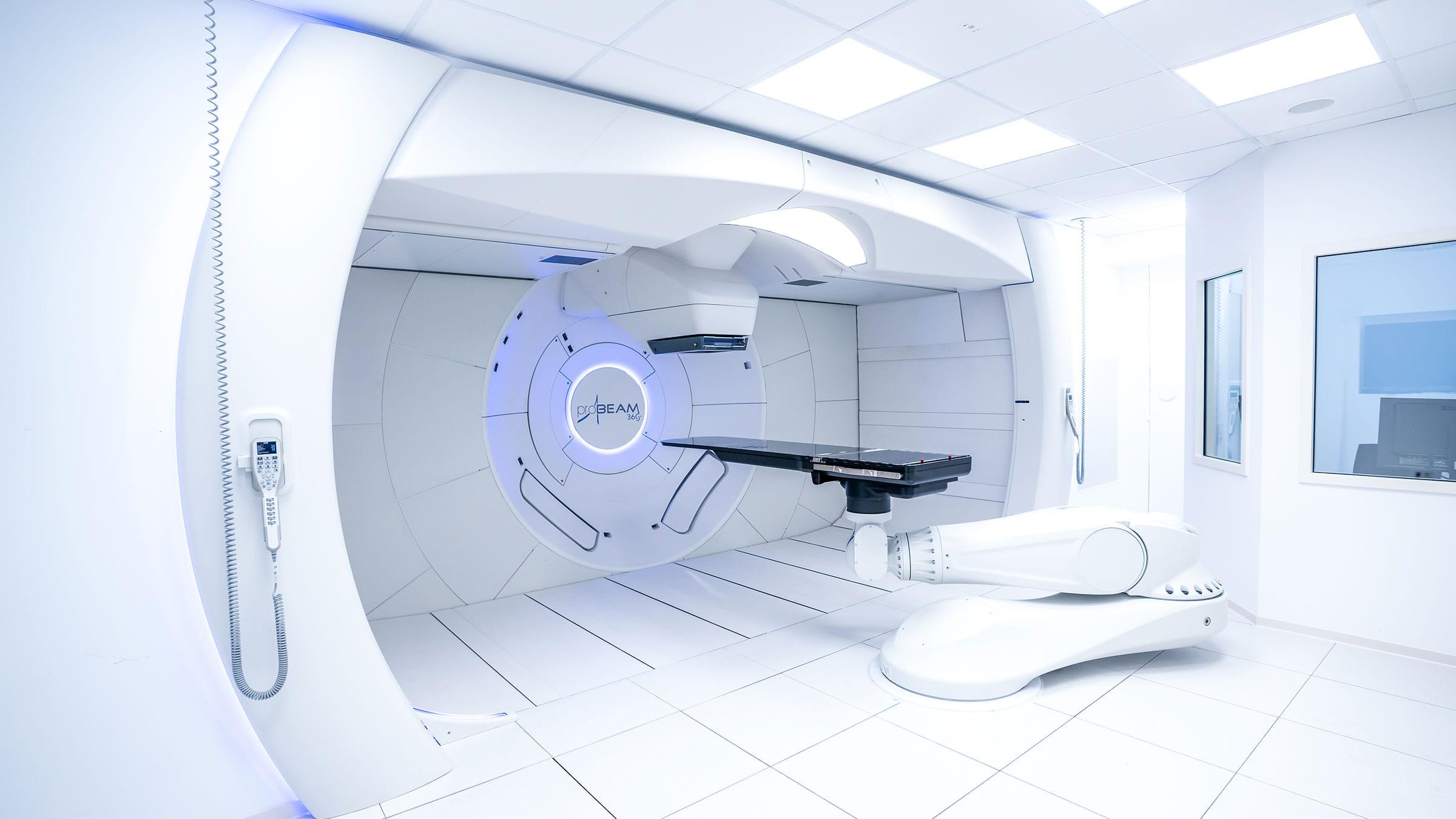Cancer, a formidable adversary, has been a significant health concern globally. Traditional treatments like surgery, chemotherapy, and radiation therapy, although effective, often come with severe side effects and complications. However, the advent of proton therapy marks a revolutionary leap in cancer treatment. This advanced form of radiation therapy targets tumors with high precision, minimizing damage to surrounding healthy tissues. In recent years, India has emerged as a significant player in offering affordable proton therapy in India, providing hope to countless patients. This blog explores the landscape of proton therapy in India, its benefits, affordability, and accessibility.
Understanding Proton Therapy
Proton therapy, also known as proton beam therapy, is an advanced type of radiation therapy that uses protons instead of X-rays to treat cancer. Protons are positively charged particles that, when accelerated to high energies, can precisely target tumors. Unlike traditional radiation therapy, where X-rays deposit energy along their path, protons release most of their energy directly at the tumor site. This precision reduces damage to surrounding healthy tissues and organs, resulting in fewer side effects and improved patient outcomes.
How Proton Therapy Works
The process begins with the acceleration of protons in a machine called a synchrotron or cyclotron. These accelerated protons are then directed towards the tumor using a magnetically guided beam. The ability to control the beam’s depth and intensity allows doctors to conform the radiation dose to the shape of the tumor, sparing adjacent healthy tissues. This is particularly beneficial for treating tumors located near critical structures like the brain, spinal cord, or heart.
Advantages of Proton Therapy
- Precision Targeting: Proton therapy’s most significant advantage is its precision. The proton beams can be controlled to stop exactly at the tumor site, reducing radiation exposure to surrounding healthy tissues.
- Fewer Side Effects: Due to its targeted approach, proton therapy typically results in fewer side effects compared to traditional radiation therapy. This is especially important for patients with cancers in sensitive areas.
- Improved Quality of Life: With fewer side effects, patients often experience a better quality of life during and after treatment. This allows them to continue with their daily activities with minimal disruption.
- Effective for Pediatric Cancers: Proton therapy is particularly beneficial for pediatric cancer patients. Children’s tissues are more sensitive to radiation, and minimizing exposure to healthy tissues is crucial for their long-term health.
The Rise of Proton Therapy in India
India has made significant strides in adopting advanced medical technologies, and proton therapy is no exception. The establishment of proton therapy centers in the country has brought this cutting-edge treatment within reach for many patients.
Key Proton Therapy Centers in India
- Apollo Proton Cancer Centre, Chennai: The Apollo Proton Cancer Centre (APCC) in Chennai is India’s first and most advanced proton therapy center. Equipped with state-of-the-art technology, APCC offers comprehensive cancer care, including proton therapy, under one roof. The center’s multidisciplinary team of oncologists, radiologists, and physicists ensures personalized and precise treatment plans for each patient.
- Tata Memorial Hospital, Mumbai: Tata Memorial Hospital, a premier cancer institute in India, has also embraced proton therapy. The hospital’s proton therapy unit provides advanced treatment options for various cancers, including those located in challenging anatomical regions.
- HCG Cancer Centre, Bengaluru: HealthCare Global Enterprises (HCG) has been at the forefront of cancer care in India. The HCG Cancer Centre in Bengaluru offers proton therapy as part of its comprehensive oncology services, making advanced treatment accessible to a larger population.
Affordability of Proton Therapy in India
One of the primary concerns with advanced medical treatments is affordability. Proton therapy, being a sophisticated and high-cost technology, was initially accessible only to a select few. However, India’s healthcare ecosystem has worked diligently to make this treatment more affordable without compromising on quality.
Cost Comparison with Other Countries
Proton therapy in India is significantly more affordable compared to many Western countries. In the United States and Europe, proton therapy can cost upwards of $100,000. In contrast, the cost in India ranges from $30,000 to $60,000, depending on the type and complexity of cancer. This substantial difference in cost has made India an attractive destination for patients seeking high-quality proton therapy at a fraction of the price.
Insurance Coverage and Government Initiatives
Several insurance companies in India now cover proton therapy as part of their cancer treatment policies. This has eased the financial burden on patients and made advanced cancer care more accessible. Additionally, government initiatives and subsidies have further reduced the cost for eligible patients, ensuring that cutting-edge treatment is not out of reach for the average citizen.
Accessibility and Infrastructure
India’s healthcare infrastructure has evolved to support the widespread adoption of proton therapy. Leading hospitals and cancer centers have invested in state-of-the-art facilities and trained professionals to deliver this advanced treatment.
Training and Expertise
The successful implementation of proton therapy requires specialized training for oncologists, radiologists, medical physicists, and support staff. Indian institutions have collaborated with international experts to ensure that their teams are well-equipped to handle the complexities of proton therapy. Continuous education and training programs have been established to keep healthcare professionals updated with the latest advancements in the field.
Technological Advancements
India’s proton therapy centers are equipped with the latest technology to deliver precise and effective treatment. These centers use cutting-edge imaging techniques, such as MRI and CT scans, to plan and guide the proton beams accurately. The integration of advanced software allows for real-time monitoring and adjustments during treatment, ensuring optimal outcomes for patients.
The Future of Proton Therapy in India
The future of proton therapy in India looks promising. As technology continues to evolve, proton therapy is expected to become even more precise and effective. Ongoing research and clinical trials are likely to expand the range of cancers that can be treated with proton therapy, offering hope to more patients.
Expanding Access
Efforts are underway to establish more proton therapy centers across India, especially in regions that currently lack access to this advanced treatment. The expansion of proton therapy infrastructure will ensure that patients from all parts of the country can benefit from this revolutionary cancer treatment.
Collaborative Research
Indian institutions are increasingly participating in global research collaborations to advance the field of proton therapy. These collaborations aim to refine treatment protocols, improve patient outcomes, and explore new applications of proton therapy in cancer treatment.
Conclusion
Proton therapy represents a significant advancement in the fight against cancer. Its precision, reduced side effects, and improved quality of life for patients make it a game-changer in oncology. India’s commitment to providing affordable proton therapy has positioned the country as a leader in advanced cancer care. With ongoing efforts to expand access and enhance expertise, the future of proton therapy in India is bright, offering hope and healing to countless cancer patients.
India’s journey in making proton therapy accessible and affordable is a testament to the nation’s dedication to advancing healthcare and improving patient outcomes. As more patients benefit from this cutting-edge treatment, the dream of conquering cancer becomes increasingly attainable.






